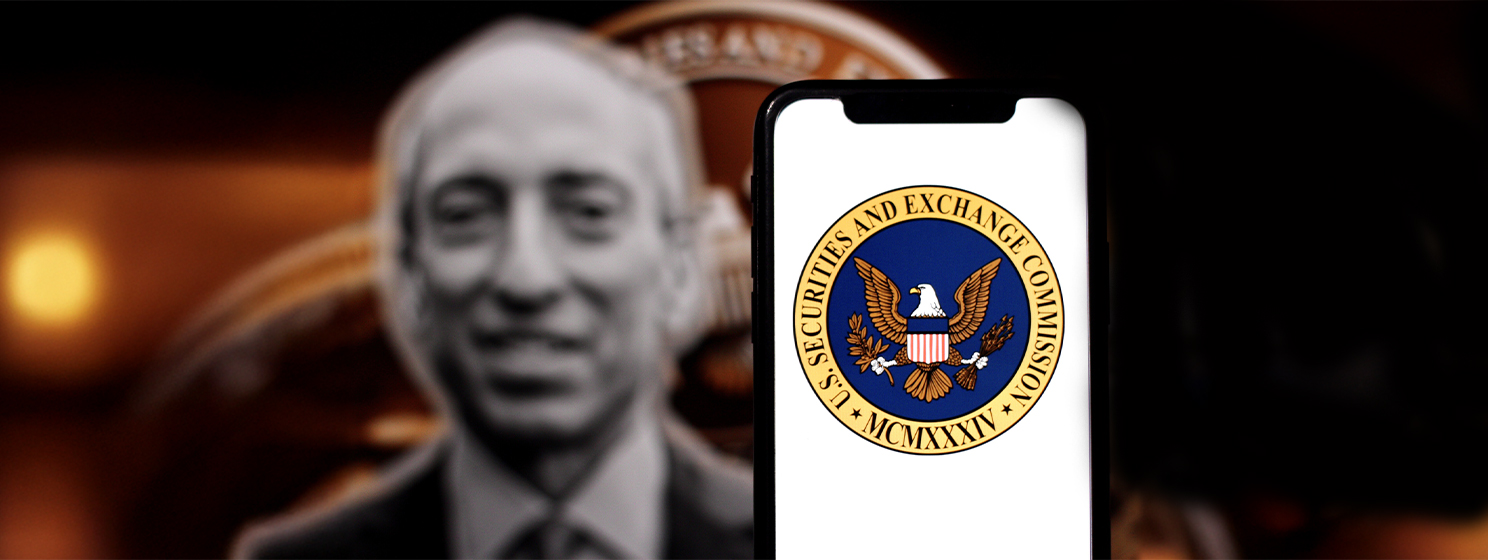|
Getting your Trinity Audio player ready...
|
Securities and Exchange Commission (SEC) Chairman Gary Gensler may be the most unpopular man in the digital currency industry.
Since his appointment by President Joe Biden in February 2021, Gensler has followed through on his promise to tame the Wild West era of ‘crypto’ with gusto. With lawsuits against Binance and Coinbase (NASDAQ: COIN), a clampdown on initial coin offerings (ICOs), and massive fines for firms like BlockFi for failing to register as a lending product, it’s clear that the SEC means business.
Last week, the non-fungible token (NFT) platform OpenSea became the latest recipient of SEC enforcement actions when it received a Wells Notice alleging that some NFTs on the platform could be considered unregistered securities.
Predictably, OpenSea co-founder Devin Finzner took to X, stating, “We’re shocked that the SEC would make such a sweeping statement against artists and creators.” Yet, it was, and ironically, it never had to be this way.
The NFT bubble and potential money laundering
As usual in the digital currency industry, Finzner’s statement on X contains a subtle lie. The SEC is not acting against creators and artists but against a company that facilitated the trade of NFTs, some of which may be unregistered securities.
Whether OpenSea actively facilitated the perception that NFTs are investment opportunities will be determined in court and will likely be one of the factors deciding the case. Regardless, it certainly promoted them, leading at least one employee to insider trade based on which NFTs the platform would draw attention to next.
Regardless of OpenSea’s role, in early 2021, the idea that NFTS were investments was rife. Beeple’s ‘Everydays: The First 5000 Days’ sold for a whopping $69 million, Bored Ape Yaught Club (BAYC) NFTs sold for millions a piece, and Stoner Cats brought the Ethereum blockchain to a standstill.
Who would pay such colossal sums for JPEGs? Part of the problem is that nobody knows. Without any direct link between blockchain wallets and identity, it’s challenging to figure out who bought and sold these NFTs. This has led the U.S. Treasury to flag NFTs and platforms that sell them as a potential vehicle for money laundering.
It never had to be this way
What do these platforms and other SEC lawsuit recipients have in common? They are centralized entities that facilitate the buying and selling of digital currencies, NFTs, and other tokens for a fee. Thus, they are legal entities subject to the laws of their jurisdictions.
Even so-called ‘decentralized’ platforms like Uniswap were created by a centralized entity, hence the SEC enforcement against Uniswap Labs. While the Uniswap platform governance is controlled by a decentralized autonomous organization (DAO) consisting of UNI token holders, Uniswap Labs spearheaded its initial development and launch. It also distributed the UNI token via airdrop.
This is likely why Satoshi Nakamoto, the inventor of Bitcoin, did not take this approach. He/she/they issued all Bitcoin tokens at zero value, and the Bitcoin protocol distributes them to miners to provide proof of work. This is why Gensler has clarified that Bitcoin is not a security and that the SEC has never filed a lawsuit against Satoshi Nakamoto.
Satoshi also clearly intended Bitcoin to be a peer-to-peer electronic cash system rather than digital gold or a speculative investment. He wanted to empower artists and creators to engage in P2P commerce on the blockchain without needing centralized, fee-taking entities like OpenSea.
Had Satoshi’s vision not been hijacked, it’s unlikely the SEC would be involved in the industry at all. The Bitcoin protocol he created can facilitate all sorts of innovation and transaction types, including the minting of unique tokens (NFTs), the use of smart contracts and just about everything else developers can dream of.
Everything happening to Coinbase and OpenSea, and others is a reckoning of their own making. Many of these entities know the truth about Bitcoin and what it was intended to be, and they suppress that truth to profit from middleman activities. After all, as long as Bitcoin doesn’t scale, companies like OpenSea are required to facilitate off-chain trading. Handily, they can also list and promote the tokens they wish to their millions of customers, profiting from the price rise that often follows.
Yet, all is not lost. The original Bitcoin protocol is alive and well, scaling to millions of transactions per second at fractions of a cent. These days, it’s known as the BSV blockchain, and all NFTs are being used innovatively and with a value-creating mindset. Items in the supply chain, in-game items, trading cards, real-world assets,and intellectual property (IP) rights all live on BSV as NFTs.
Much like blockchain technology and digital currencies, NFTs will emerge from the ashes, and the world will realize their utility. That part usually comes after the first wave of hucksters, scammers, and promoters has been dealt with, and the real work can begin.
Watch: ComplexCon Hong Kong takes attendees on ‘phygital’ journey with nChain app

 02-18-2026
02-18-2026 




